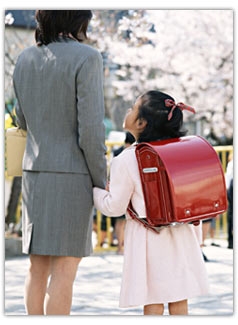The Japanese government will soon be making good on its promise of distributing money to families with children, giving approximately $140 per child per month, with the amount set to double next year. The plan was a major tenet of the Democratic Party of Japan’s “Manifesto,” which promises to switch the focus of the government “from concrete to humans” by replacing unnecessary construction projects with policies that benefit people directly. While helping families with children is all well and good, I’m not sure if this new plan is going to have that much benefit. The lack of clear leadership and direction by Prime Minister Hatoyama — famously described as “loopy” by the Washington Post, which caused a minor uproar here — makes voters more worried about the future, which probably won’t have a positive effect on the birthrate. The payments are available to all residents of Japan who pay taxes including gaijin, and in an effort to help dekasegi foreigners who send money to their families in countries like Brazil or Peru, the money will be granted to people whose dependent children don’t live in Japan. This seems to open the door to fraud, though, and this has already happened: a South Korean man tried to claim 554 adopted children in Thailand as his dependents, which would entitle him to $75,000 per month. His application was declined.

Japan is trying to improve its birth rate using cash payments.















